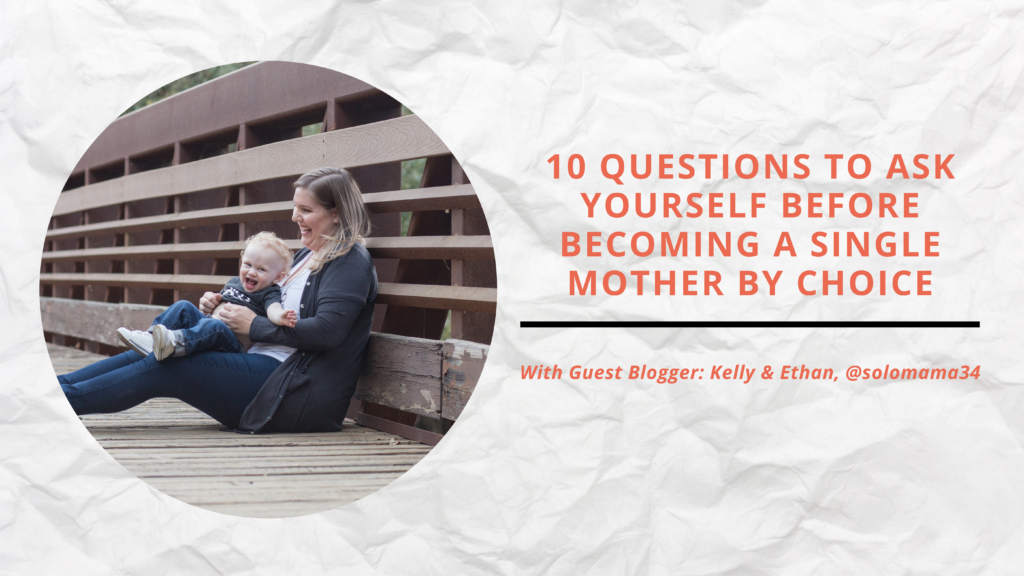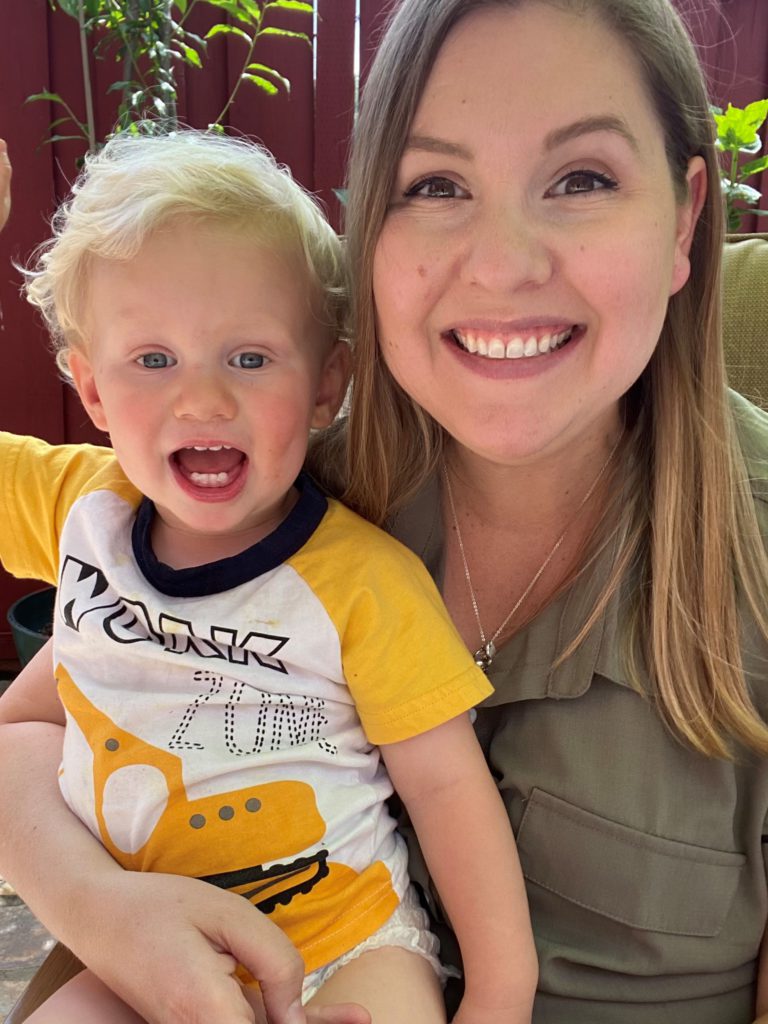10 Questions to Ask Yourself Before Becoming a Single Mother by Choice
Guest Blogger and Single Mother by Choice, Kelly, of @solomama34 shares insights to consider before becoming a Single Mother by Choice

Motherhood is one of the most rewarding and challenging journeys you can embark on in life. For many of us, it is a calling – we’ve envisioned becoming mothers for as long as we can remember, while for others it is a longing that comes on later in life. Either way, our view of motherhood is often accompanied by visions of a life partner going through the ups and downs of parenthood with us. But what do you do when life doesn’t go according to plan, and you find yourself on the wrong side of 30 and still single?
Solo motherhood is a valid option and one that I wholeheartedly embrace and recommend (though I may be a little biased 😉). It is, however, a huge life decision that requires a lot of soul searching and planning. Here are ten questions to ask yourself to help determine if solo parenthood is the right choice for you:
1. Why do I want to become a solo mother?
There are many plus sides to becoming a solo parent – no custody issues, no compromising on how you raise your child(ren)…but it can also be incredibly challenging, lonely, and stressful.
Oftentimes, this is not “Plan A.” Give yourself some grace and allow yourself to grieve the loss of your original plan before you decide what your next move is.
2. What does my fertility look like?
If you haven’t had your fertility checked, go make an appointment ASAP! There are a number of tests your OBGYN or fertility doctor can run to get a better idea of where your body is in terms of your fertility. Although you won’t truly know until you try, information is power and can help guide your decisions in this process.
3. What are my family goals?
Imagine your life in five years. What does your family look like? Is it just you and one child? Do you see yourself with two children? A house full of kids? Married? Single?
When deciding on your course of action, be sure to consider your family planning goals. For example, if you know you want more than one child, it may make more sense to skip right to IVF in order to create embryos for future children. If you want to keep the possibility of having a child with a future partner open, you may consider freezing eggs for later use.
4. What is my financial and emotional limit?
Fertility is complicated. Some women get pregnant easily, while others can’t seem to catch a break. All of your tests can come back normal and you can still struggle to get and/or stay pregnant.
At what point will you stop and reevaluate, and potentially change course? How much are you willing to risk financially and emotionally before taking a break or calling it quits?
5. Am I open to other paths to motherhood?
The path to motherhood isn’t one size fits all. Is it important that your children are biologically yours? Are you open to other options (egg donor, embryo adoption, surrogacy, traditional adoption, foster to adopt)?
6. Am I financially prepared for the cost of fertility treatments?
Fertility treatments and sperm can be very expensive and are often not covered by insurance. However, there are ways to make this path more affordable, from budgeting or temporarily taking on a second job to exploring different financing options available.
Additionally, some options are cheaper than others (IUI vs IVF, known donor vs donor from a cryobank, at-home insemination vs doctor’s office insemination, medicated cycle vs non-medicated). Discuss your options with your doctor and make a decision together based on your personal fertility, family goals, and finances. And be sure to call your insurance company to see if anything is covered!
7. What do my finances look like in general?
The hardest part about being a single mother by choice for many women is raising a child on a single income. While finances aren’t necessarily a reason to not move forward, it’s important to examine your finances and be honest with yourself about the reality of your situation.
Do you have a stable job? Secure housing? What large expenses do you anticipate in the next several years (new car, a big move, medical procedures, etc.)? Do you have an emergency fund? Have you considered childcare expenses?
You don’t have to be wealthy to choose this path, but you may need to think creatively or make sacrifices in some areas for the benefit of your child. And depending on your age and fertility status, you might even consider waiting until you are in a better place financially.
8. Do I have a support system in place? If not, what is my plan?
Both fertility treatments and parenthood can be an emotional and physical rollercoaster. Don’t wait until you are drowning to figure out what you need to stay afloat.
Ask yourself: What coping mechanisms do I have? Who can I lean on for emotional support? Who can I call on for in-person, task-oriented support (bringing food, running errands, cleaning, childcare so you can take a shower, sleep, or get out of the house alone)?
They don’t say “it takes a village” for nothing. While you may be a solo parent, you don’t have to do this alone. Be open to accepting help and start building your tribe now!
9. Am I comfortable with having a donor conceived child? How will I approach the topic with my future child, friends, family members, etc.?
Unless you are adopting, becoming a single mother by choice means using a sperm (and sometimes egg) donor in order to conceive.
It is crucial to be open and honest with your child about their conception story from birth. Donor-conceived individuals whose parents hide their origins from their children often lead to feelings of anger, mistrust, and resentment when they find out later in life.
While you don’t have to share your story with strangers on the street, you should feel comfortable talking about your decision with close friends and family. If you are insecure or ashamed of how you chose to make your family, your child will pick up on that. Normalize their birth story by starting to tell it to them early on – even before they are born!
10. Will I regret not having a child?
Starting a family is a deeply personal decision. At the end of the day, you have to ask yourself what is most important to you? When you look back on your life, will you regret not having a child?
For many women, myself included, the knowledge that love can come at any age, but fertility is finite, was the push they needed to move forward with solo motherhood.
There is never a perfect time to have a baby. You can plan and plan (and so many of us do!), but sometimes you have to take a leap of faith and just go for it. You will learn as you go. You will make mistakes. You will laugh. You will cry. But in the end, all the tears and stress and money spent will be worth it when you look down at the perfect little human that made you a mom.
Follow Kelly & Ethan on Instagram to keep up with all their adventures at @solomama24!

Looking to start your donor search and grow your family? Visit our donor search today!







